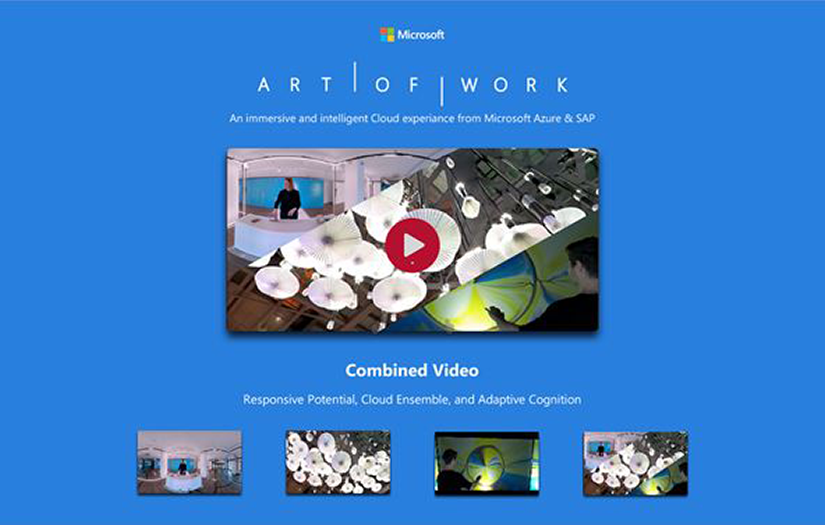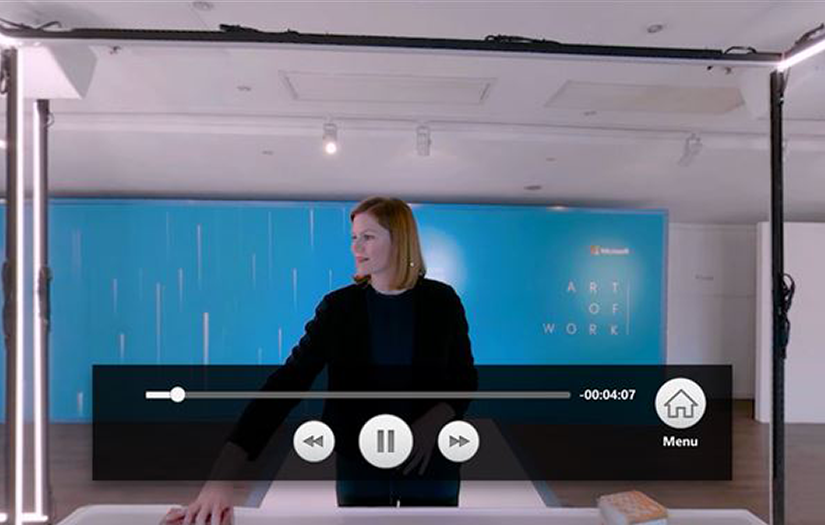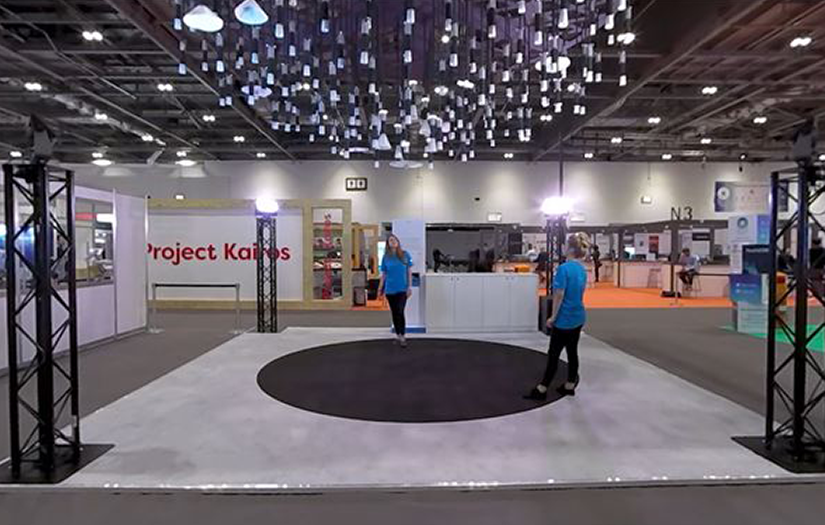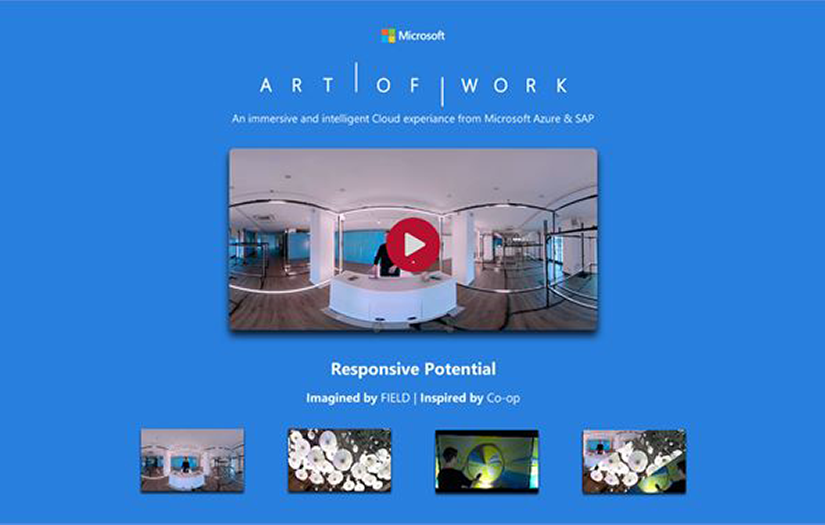

Intelivita
Immersive Mobile App and Web Development Solution
Intelivita is the leading web and mobile application development company, with its offices in the UK and India. it provides concept-driven interactive and scalable application development service to its worldwide clients. Till date, Intelivta has successfully delivered over 100+ projects, the team has gained appreciable response for their instant support and real-time updates. Our range of services includes web and app development, mobile games, augmented reality and virtual reality solutions etc. The key to successful planning and implementation of technology rests in the team of our expert developers and designers. The young brains have years of expertise and tested modus operandi to execute custom solutions for its clients. To ensure that the team reaches set targets, they follow certain practices. These practices primarily include rounds of discussion with the client to understand project requirement followed by industry research competitor analysis, and user expectations. For the effective and efficient project management, Intelivita follows the agile software development methodology. Once the aforementioned steps are completed, the design and development team takes a step ahead to build a customized solution to assist the client in reaching their set goals.
 India
India
Service Focus
Industry Focus
- Business Services - 20%
- Education - 20%
- Healthcare & Medical - 20%
- Hospitality - 20%
- Real Estate - 20%
Client Focus
Detailed Reviews of Intelivita
- All Services
- Mobile App Development
- Relevance
- Most Recent
- Rating: high to low
- Rating: low to high


Intelivita have been awesome to work with!
Client Portfolio of Intelivita
Project Industry
- Transportation & Logistics - 50.0%
- Information Technology - 50.0%
Major Industry Focus
Project Cost
- $10001 to $50000 - 50.0%
- Not Disclosed - 50.0%
Common Project Cost
Project Timeline
- 1 to 25 Weeks - 100.0%
Project Timeline
Clients: 16
- Microsoft
- Samsung
- Oxitec
- Toxic Fox
- CSL
- The Harley Street Clinic
- BBC Studios
- AkzoNobel
- West Riding
- LabelXChange
- Savvy
- Zinc Media
- Handley
- ITV
- Sky
Portfolios: 2


Executive Interview of Intelivita

As one of the founding partners, I am actively engaged in the day-to-day operations of Intelivita. I take care of onboarding new clients through requirement gathering, establishing consensus on the project timeline, putting down a definite tech stack in place, and also arriving at an estimated cost to the client. Once the project is approved, the ownership of project management is handed over to a dedicated project manager. I remain in constant touch with the team and the client acting as a person of contact. Be it for alterations, or escalations, I am always available for discussion.
As the entire team works on the same floor, it leads to a thorough discussion before we start actual development work on the project. Thus, all features of the proposed system are more thoroughly evaluated, and any pitfalls omitted. It also leads to better on-going communication during the development as there are multiple persons involved in a single project, and they sit & work together.
As someone with an artistic mindset, I see this as nothing short of a work of art. Like artists, whenever we hit a roadblock, our development team creates creative and innovative workarounds. The end result is a perfectly crafted UI/UX that meets client requirements.
Also, a wide majority of the projects that come our way are new ideas and concepts that have not been tried in the market before. That calls for building a Minimum Viable Project. MVP development is a popular approach around the world, but there are not many specialists like Intelivita who offer it as a service. This is one of our core differentiators.
To deliver projects on time, within the budget, and also with benchmark quality, we follow agile methodology. Each project is broken down into individual sprints, each with its own well-defined deliverables. Intelivita has been hiring highly talented and experienced team members since day one. That makes it possible to work with maximum efficiency with minimal errors. So, we are able to commit to the client a clear deadline by when the project would be completed.
Another key fact to note is that we don’t take up-front payment for all the milestones. We deliver the work to the client, gather feedback, and incorporate those changes before delivering a completed task. Our agile methodology also helps work with pace and with urgency, unlike other project management methodologies.
- User experience — a simple UX does not require many resources. A complex UX which has to solve complex problems minimally is more time-consuming to build.
- Features — a long list of feature set extends the time frame for app development.
- Devices — Building apps for multiple operating systems and devices require more resources and time.
- Resources — Although Intelivita is adequately manned to build any kind of mobile app, we have to take into account that there are other projects going on. Further-more we need to decide on the internal team who will work on the app based on the features.
- App objectives — A well-built mobile app should solve problems. It should delight users and deliver a memorable user experience. It doesn’t come easy.
- Third-party integration — integrating other Third-party SDKs and their APIs with the app calls for more time and man-hours.
- Complexity — this is a subjective calculation. What is complex in one app environment may not be so in another environment. For instance, the logic for a food delivery app is pretty straight-forward. But, a real-time location-based dating app is complex and requires planning for diverse scenarios.
Secondly, the client must ask themselves who are the target users. If the app’s target users are mostly in the United States / UK or any developed country, iOS should be given the first preference considering its market share, though it’s very near to Android.
Four simple reasons Native is better:
- Vast Developers community — there is a large talent pool of developers for Android & iOS. Finding developers with the right mix of experience and expertise is not difficult.
- Features — Native platforms offer flexibility and scalability to integrate external APIs or SDKs, which hybrid platforms lack.
- UI/UX — Native platforms offer developers a blank canvas to create the perfect UI/UX that is best related to the user persona and app’s requirements. Complex UI elements can’t be easily designed/integrated into Hybrid as compared to Native.
- Native app development also facilitates the creation of UI Controls, which are consistent throughout the platform ecosystem and one which the users are already familiar with.
- Performance - the Native, always performs better than the Hybrid app, especially when it comes to app loading speed, it provides seamless user experience in all app operations. Also, they support technologies like Augmented Reality, Virtual Reality, IoT, etc. seamlessly.
- UI - Does the UI consist of straight-forward UI elements, or does it require more custom work?
- Platform - This is the key factor, whether the app is needed for both iOS and Android, or either.
- Devices - Whether an app is required for both mobile phones and tablets, or only for mobiles. Tablets do require a bit of extra work in terms of UI.
- Functionality / Features - Number of features has a major impact on the cost of the app. obviously, a simple static informative app would be very cheap in comparison to let’s say a taxi booking or a dating app.
- Back-end - Does the app require a back-end if it’s a data-driven app? If yes, then does the app require data from the back-end in real-time (real-time data examples would be Fantasy Sports / Betting / Taxi Booking / Food Delivery apps)?
- Development Team - Experience & ultimately pay-scale of the person working on the app also determines the app cost. More complex apps do require more experienced developers to work on them. At Intelivita, we believe each app needs to work perfectly no matter how small or big it is, and based on the requirement, we decide on the end person who will work on the app.
- Third-Party SDKs - If an app requires more third-party SDKs – it takes more development time and as such, is a factor that should be considered.
- Paid app – An app which user can buy outright by paying a one-time cost. User is allowed to use all the features of the app without any restrictions.
- Advertisements - Basically, the app is monetized by displaying adverts on various screens of the app. Adverts can be in the form of video ads, banners, full-screen, rewards ads, etc. This monetization method is very beneficial where there is huge traffic of users, and users use the app recurrently, but the target users can’t be incentivized to outright purchase the app. Client’s usually earn depending on how many clicks their ads receive & from which region the ad click-through occurs.
- In-app purchases IAP — this works for a free app that has advanced features that users can unlock by making various purchases within the app. This is particularly useful for apps related to business, gaming, entertainment, productivity, etc. Furthermore, clients can also offer a subscription-based model - where subscription is offered via IAP, and users can gain access to advanced features by paying monthly/quarterly/yearly fees. A good example of this would be Fitness app / on-demand content apps.









